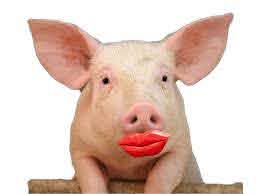You Think So?
Often when I hear a politician or news person speaking, I wonder about their religious identity. Usually it is something in their language that causes me to wonder if they are Catholic.
This happened the other day as I was listening to the Governor of New Jersey talking on a news show. I had never seen the Governor or heard him talk before, but there was something in his speech that sounded familiarly Catholic to me.
As I researched him, sure enough, he identifies himself (somewhat loosely) as a Catholic, referring to his parish and so forth.
So imagine my surprise when I learned that about a year ago he actually signed a bill called the Medical Aid in Dying Bill. The bill allows for terminally ill patients to be given a prescription for a lethal drug. (don’t you love how these bills always put a soft name on a terrible law?)
Anyway, here is what multiple sources quoted him as saying:
“After careful consideration, internal reflection, and prayer, I have concluded that, while my faith may lead me to a particular decision for myself, as a public official I cannot deny this alternative to those who may reach a different conclusion.”
I am so tired of this ridiculous conclusion that politicians make—as if we can separate our political conscience from our moral conscience.
Here’s what St. Pope John Paul II had to say about this back in 2002, which I think is critically important on this subject:
Translation: political and civil issues are rightfully separate from religion and the Church, but morality cannot be separated from either of these, because morality has to do with the human person.
There’s more:
“The Church recognizes that while democracy is the best expression of the direct participation of citizens in political choices, it succeeds only to the extent that it is based on a correct understanding of the human person. . . The democratic structures on which the modern state is based would be quite fragile were its foundation not the centrality of the human person. It is respect for the person that makes democratic participation possible.”
In fact, he says:
“There cannot be two parallel lives in their existence: on the one hand, the so-called ‘spiritual life’, with its values and demands; and on the other, the so-called ‘secular’ life, that is, life in a family, at work, in social responsibilities, in the responsibilities of public life and in culture.”
But here’s the clincher that really struck me:
“Those who, on the basis of respect for individual conscience, would view the moral duty of Christians to act according to their conscience as something that disqualifies them from political life, denying the legitimacy of their political involvement following from their convictions about the common good, would be guilty of a form of intolerant secularism. Such a position would seek to deny not only any engagement of Christianity in public or political life, but even the possibility of natural ethics itself.”
Are you following this?
Here’s what I am wondering.
If we say that a politician must separate his or her deeply held moral and ethical values from their governmental duties, what kind of a person does that leave us in government to make laws for the common good?
I’m in a dither about the Governor of New Jersey’s statement because it is nothing more than putting lipstick on a pig.
If you want to read more, my quotes come from The Participation of Catholics in Political Life (Pope John Paul II).
Janet Cassidy
janetcassidy.blogspot.com




Comments
Post a Comment